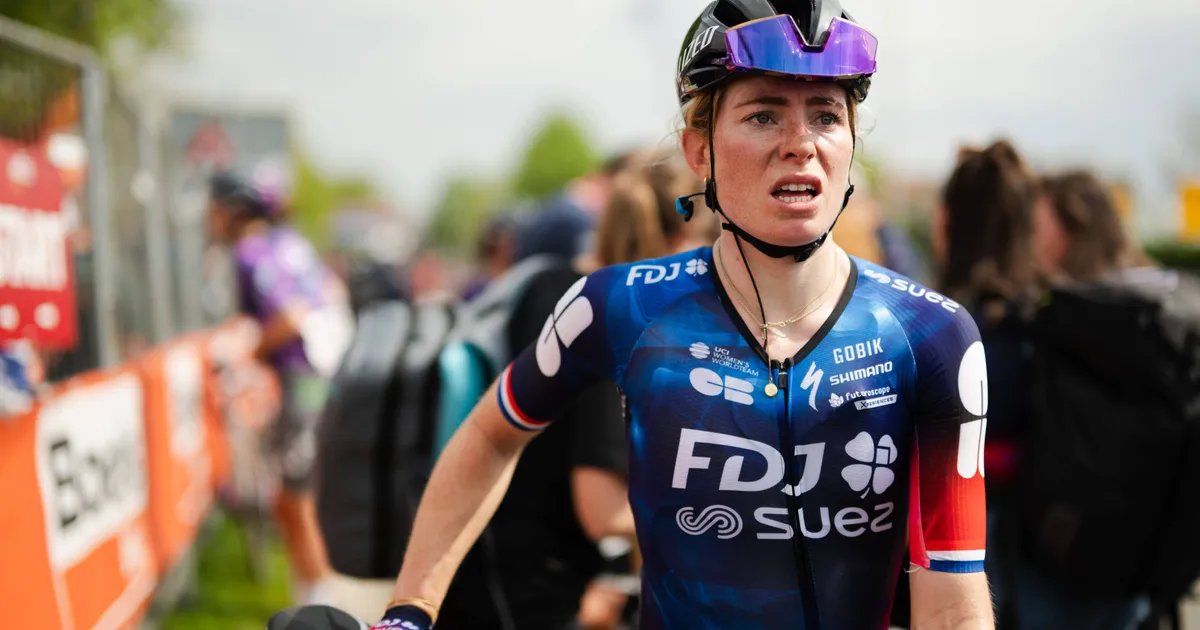Weight in cycling is a sensitive topic and one that is still understandably problematic. The hope of better climbing performances is one that is inherent to the sport and that leads many to go into severe weight deficit – to the point where it’s unsustainable. Demi Vollering, one of the top riders in the women’s peloton, was asked time and time again about her weight during the recent Tour de France Femmes and has now shared a long message regarding her opinion on the matter.”Now that I’ve had a few days to put things into perspective, here’s my personal opinion on the ‘weight topic’. After the Tour, around 80% of the questions I received in the final press conference were about my weight,” the Dutchwoman reveals in a long Instagram post. “Whether I planned to lose more. Whether that would be the way to win the Tour de France again. Whether that was the key to performance in the future”.
“I get it—this is sport. People are enthusiastic and have opinions. But let me be clear: I make, and will continue to make, every decision in my career by putting my health first. Always. The truth is: I’m not built to be the lightest rider in the peloton. And I don’t want to force my body to become something it’s not”.
There had been comments regarding the weight of Pauline Ferrand-Prévot and how that helped her to victory in the French race, but overall in women’s cycling there is a larger amount of questions regarding the riders’ weights – something that does not fall well for everyone, and the FDJ – Suez rider understandably hit back at. Directly after the Tour most questions she received were regarding her weight which can come off as untasteful for many riders.
Vollering is specially unhappy with this criticism, taking into consideration that she already competes at the absolute highest level and with a very low body weight. “I’m already racing at the highest level—with a strong, lean, capable body. We did everything we could to arrive at the Tour in the best possible shape—for me. Every rider does that in their own way. This post isn’t about comparison. There’s no single path to success. I’m deeply grateful for the body and the length I have—it’s brought me so many beautiful victories. I don’t take that for granted”.
The 28-year hopes that with this she is able to make a positive influence in the mind of other riders, but specially the younger generations, in hopes that they do not follow a path that could turn into a barrier in the way of a healthy lifestyle. Whilst still relatively taboo, it is known that within the peloton there are several athletes who have problems or do not have their regular menstrual cycle due to the demand that is put on their bodies.
“So why share this now? Because young girls are watching us. They notice what we say—and what we don’t. What we show. What gets celebrated as “the way” to succeed. Sometimes, what they see quietly plants a seed. They might not talk about it. Or even realize it’s becoming something harmful. That’s why we—as high performance athletes, teams, and a sport—have a responsibility. We must create safe environments where athletes can ask questions, speak openly, and get the right guidance—especially young and developing riders. Because the risk is real. Because health isn’t always visible. Because disordered thinking can grow quietly and stay hidden for a long time”.
The Strade Bianche and La Vuelta winner continued: “Everyone’s body is different. Every athlete needs a different approach. What matters is making the right decisions for your health, with the right support. Losing weight is not the ultimate solution. For me, performance is about far more than that. It’s about strength. Balance. Fueling well. Feeling mentally strong. And recovering faster than everyone else”.
“Without that, no number on the scale will make you faster—or happier. To every young rider out there: Take care of yourself. Ask questions. Trust your body. Every champion’s story is different. And yes, for those wondering: I’ll do everything I can to get there again—on my way”.

